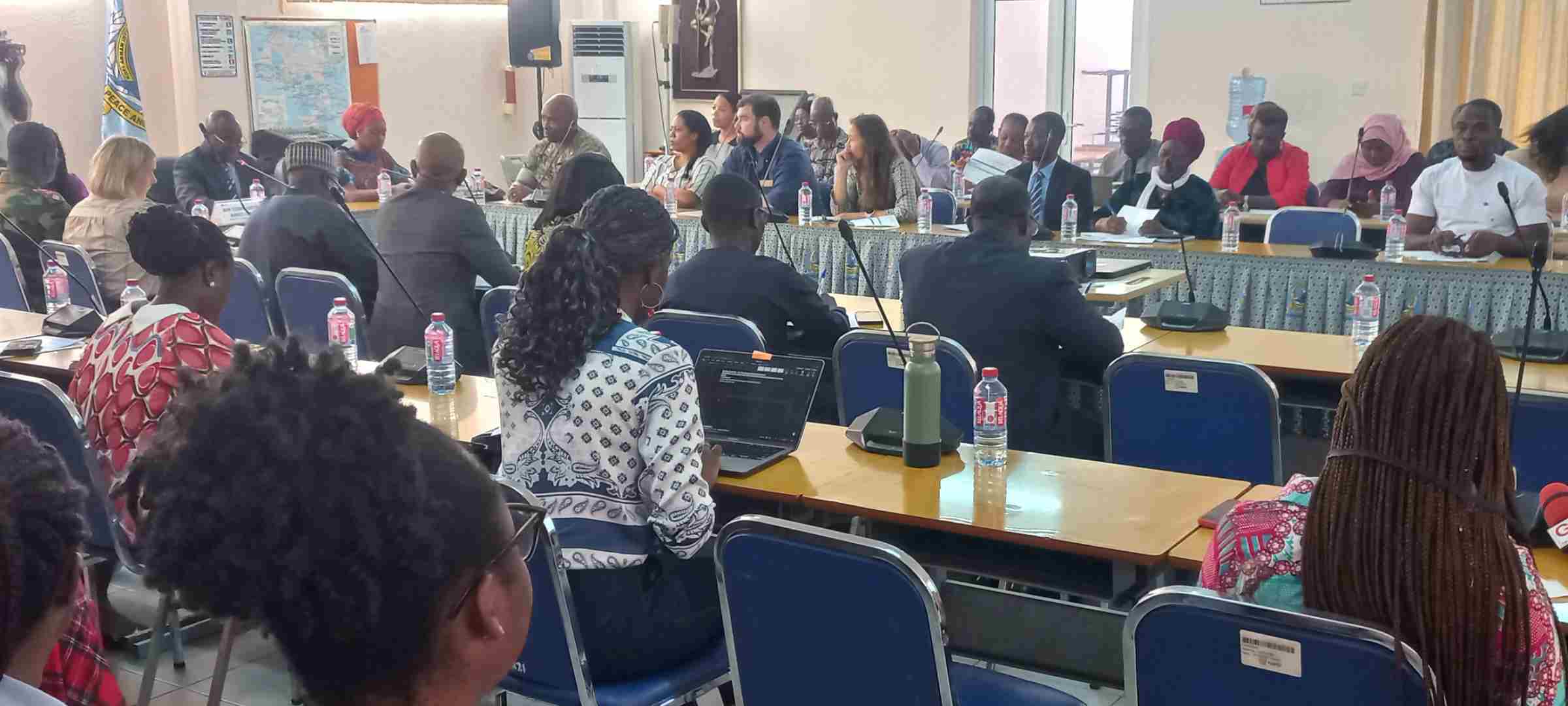Fifty (50) participants made up of experts, civil society organizations, practitioners, bilateral partners, High Commissioners and students, drawn from the political, economic, and environmental science fields, have held a one-day seminar to thoroughly assess the impact of the Russia-Ukraine Conflict on Africa, and to propose measures to mitigate its effects on Africa.

The seminar captioned “Assessing the Impact of the Russia-Ukraine Conflict on Africa”, was held on Wednesday 5 July 2023, at the Games Room of the Kofi Annan International Peacekeeping Training Centre (KAIPTC), with the Deputy Commandant – Air Commodore (A/Cdre) George Arko-Dadzie, as the Guest of Honour.
The meeting covered three (3) themes namely; i) What the impacts of the Russia-Ukraine armed conflict on the evolution of central governments in African states are, ii) Which measures are required to facilitate Africa’s capacity within this period and beyond, and iii) Which strategic approaches can be implemented to address countries in the Sahel Region like Burkina Faso.

Delivering the opening remarks at the seminar, the Deputy Commandant stated a few leading points among which were that, one year has passed since the Russo-Ukraine conflict erupted, disrupting prices of food and energy around the world and leaving several nations reeling from its aftershocks; of which effects Africa has not been exempted, inclusive of increased food prices, break in diplomatic channels, etc.
The impact of the Russia-Ukraine crisis on Africa may go beyond economic and social implications, A/Cdre Arko-Dadzie furthered, and that concerns about the emergence of proxy wars, waning commitments to democratization, and undermining of African multilateralism are on the horizon, with Western governments closely analyzing Africa’s responses and positions on the crisis.

The Air Cdre intimated that the invasion and its ensuing impasse between Russia and the West threatens world peace, recalling sharp divides evident in African votes at the United Nations (UN); while some nations denounced Russian aggression, others adopted a ‘non-aligned’ stance, and several other nations chose not to participate in the vote.
He continued that the isolation of Russia, as a result of the punitive sanctions imposed by the West, is negatively affecting Africa in the form of rising prices for goods such as grains, sunflower oil, crude oil and fertilizer, and has the potential to turn Russia into a fortress that will pursue an aggressive foreign policy in Africa and other weaker regions, with an agenda to gain allies, markets, raw materials, and diversify its external relations.
The effect may also have some ramifications on African politics, as similarly, persecuted rogue African leaders, who wrongfully do not want to give up their positions as Heads of State, may seek Russian backing, thus threatening the peace and security on the continent, he concluded.

Background
A Concept Note released by KAIPTC on the seminar said the consequences of the invasion on Africa include the causing of a rapid-fire refugee crisis, unparalleled punitive measures on Russian’s economy, and a reorganization of international alliances, including a refocused North Atlantic Treaty Organization (NATO).
The economy of Africa was among the fastest growing in the world until 2020 when the COVID-19 pandemic disrupted years of hardly-attained macroeconomic stability and governance developments on the continent, with trade flows between Russia and Africa declining widely due to the closure of critical port operations in the Black Sea, the note stated.
The Director, Faculty of Academic Affairs and Research (FAAR) of the KAIPTC – Dr Emma Binkorang, in a media engagement, said that Ghanaians can testify that costs of food and energy has risen sharply, with the political class using it to justify harsh economic effects.

She said that on the security dimension, it has left a fragile West African subregion, since anything that happens outside of Africa tends to have negative effects on the continent, citing the Wagner Group of Russia now shoring up certain regimes in the region, such as Mali and Central African Republic, providing protection for Heads of State or transitional governments.
She cited the example of the Malian transitional authority defying the authority of the Economic Community of West African States (ECOWAS), and said, judging from the participants at the seminar, such as development partners and core security actors, it would provide knowledge and what specific interventions are needed to mitigate the impact in the subregion.

The FAAR was established as the Conflict Prevention, Management and Resolution Department in 2004 as the research arm of the KAIPTC, and runs and coordinates the academic programmes at the Centre on conflict, peace and security, gender, peace and security and international conflict management.
It leads academic curriculum development and provides technical assistance on academic curricula, administration, teaching, research and Thematic Programmes which produce publications, develops training and academic courses, plans and manages projects, supporting policy activities for African peace and security.
